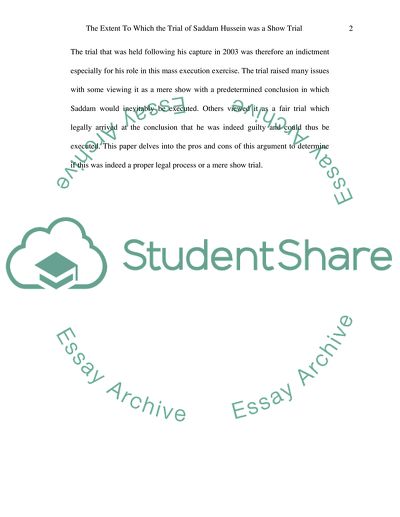Cite this document
(To What Extent Was the Trial of Saddam Hussein a Show Trial Essay, n.d.)
To What Extent Was the Trial of Saddam Hussein a Show Trial Essay. Retrieved from https://studentshare.org/miscellaneous/1734845-to-what-extent-was-the-trial-of-saddam-hussein-a-show-trial
To What Extent Was the Trial of Saddam Hussein a Show Trial Essay. Retrieved from https://studentshare.org/miscellaneous/1734845-to-what-extent-was-the-trial-of-saddam-hussein-a-show-trial
(To What Extent Was the Trial of Saddam Hussein a Show Trial Essay)
To What Extent Was the Trial of Saddam Hussein a Show Trial Essay. https://studentshare.org/miscellaneous/1734845-to-what-extent-was-the-trial-of-saddam-hussein-a-show-trial.
To What Extent Was the Trial of Saddam Hussein a Show Trial Essay. https://studentshare.org/miscellaneous/1734845-to-what-extent-was-the-trial-of-saddam-hussein-a-show-trial.
“To What Extent Was the Trial of Saddam Hussein a Show Trial Essay”, n.d. https://studentshare.org/miscellaneous/1734845-to-what-extent-was-the-trial-of-saddam-hussein-a-show-trial.


